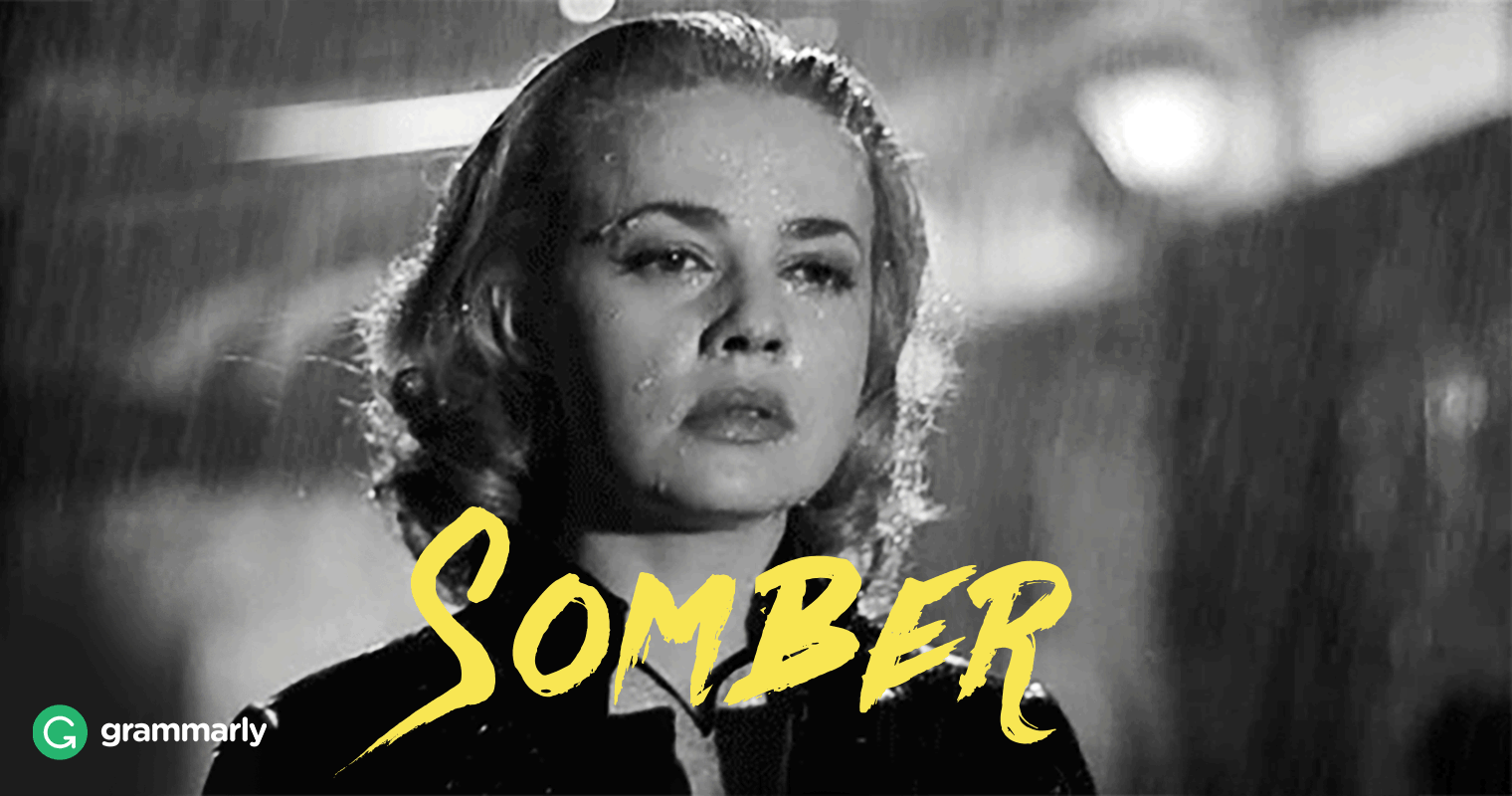Somber is an adjective we use to describe dark and shadowy things. It can describe someone’s mood, a color, the weather, or the general atmosphere. You might also see it spelled sombre—it’s not an incorrect spelling, it’s just the spelling more commonly used outside of the United States. In the US, somber is the preferred spelling.
Meaning of Somber
Somber is not a word you’d use when it’s sunny and bright. Save it for when it’s dark and gloomy—when there’s little light and when things can’t be taken lightly. Its roots go all the way back to the Late Latin subumbare, meaning “to shadow.” Fun fact—the Spanish word sombrero also shares this root.

Let’s see a couple of sentences with the word somber in action:
Synonyms for Somber
There are a lot of synonyms for somber, depending on what you’re describing. If you’re talking about a somber atmosphere, you can use gloomy, grim, shadowy, or even dimly lit instead of somber.
If you’re talking about a mood, depressed and melancholic come to mind, as do funereal and once again gloomy. When referring to the color of something, synonyms of somber might include dull and dark. Somber can also be used to describe solemnity, graveness, and extreme seriousness.
Somber vs. Sombre
If you come across this word spelled sombre, you should know it’s not a mistake. This is the standard spelling in all English-speaking countries except the United States. Sombre is the original spelling of the word, and it’s the same spelling used in French, which is where English borrowed the word in the first place. It’s not uncommon for words ending in -re in British English, like fibre or litre, to end in -er in American English—fiber or liter. Somber is just another one of them.






